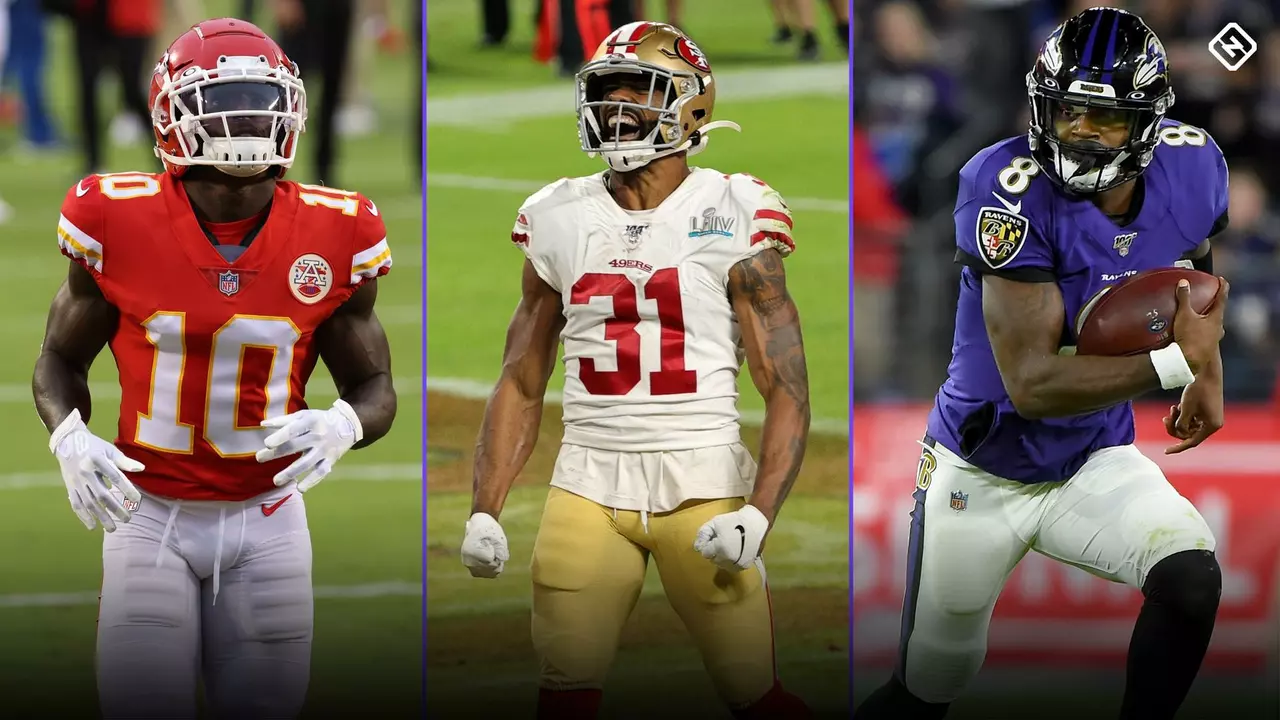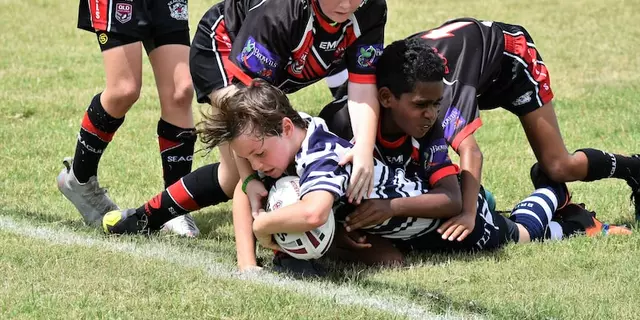Introduction: Speed in the NFL and Rugby
As a sports enthusiast, I often find myself comparing athletes from different disciplines, wondering how they would fare against each other. One question that frequently comes up is: are NFL players faster than rugby players? To answer this question, we will examine various aspects of both sports and compare the speed and athleticism of their respective athletes. So, buckle up and let's dive into this interesting analysis.
1. Comparing the Physical Attributes of NFL and Rugby Players
First, we need to consider the physical attributes of the athletes in question. NFL players tend to be bigger and bulkier than their rugby counterparts. This is mainly because of the specialized positions in American football, which often require a specific body type. For instance, linemen need to be heavier and more powerful to block and tackle effectively. Conversely, rugby players generally have more balanced physiques, since they all need to perform similar tasks – running, tackling, and passing – during a match. However, this doesn't necessarily mean that NFL players are slower; in fact, many of them possess incredible speed and agility despite their size.
2. The Role of Speed in Both Sports
When comparing the importance of speed in the NFL and rugby, it's essential to recognize the different ways it plays a role in each sport. In American football, speed is crucial for wide receivers, running backs, and defensive backs, as they need to cover large distances quickly and make explosive plays. Rugby, on the other hand, requires all players to have a certain level of speed and endurance, as the game is played at a fast pace with few stoppages. This may lead one to believe that rugby players are faster overall, but we need to delve deeper to draw any definitive conclusions.
3. Sprint Times and Top Speeds of NFL and Rugby Players
One way to compare the speed of NFL and rugby players is to look at their sprint times and top speeds. In the NFL, players routinely post sub-4.5 second 40-yard dash times, with some even going under 4.3 seconds. In rugby, players are more likely to be timed over 100 meters, with the fastest reaching speeds of around 10.5 seconds. While these figures may suggest that NFL players are faster, it's important to remember that these times are often achieved by specialists in specific positions. Rugby players, on the other hand, must balance speed with other attributes, such as strength and endurance.
4. Acceleration and Change of Direction
Another factor to consider when comparing the speed of NFL and rugby players is their ability to accelerate and change direction. In this regard, NFL players tend to have the edge, as their sport demands short bursts of speed and rapid changes in direction. Rugby players, while still agile, typically focus more on maintaining a high level of speed and endurance throughout the game. This means that, in terms of pure acceleration and change of direction ability, NFL players may hold a slight advantage.
5. Endurance and Long-Distance Speed
When discussing speed, it's also important to consider endurance and long-distance running ability. In this area, rugby players tend to excel, as their sport requires them to maintain a high level of fitness and speed throughout an 80-minute match. NFL games also last around 80 minutes, but the actual playing time is much shorter, with frequent stoppages and breaks. As a result, rugby players generally have better endurance and long-distance speed, which could give them an edge in certain situations.
6. Speed Training and Conditioning
The training and conditioning regimens of NFL and rugby players also play a significant role in their speed and athleticism. NFL players tend to focus on strength, power, and speed, with specialized workouts tailored to their specific positions. Rugby players, meanwhile, must balance speed and endurance training, as well as develop their overall strength and power. Ultimately, the training and conditioning of both groups of athletes contribute significantly to their respective speed and agility on the field.
7. Comparing the Fastest NFL and Rugby Players
To get a clearer picture of the speed of NFL and rugby players, it's helpful to compare the fastest athletes in each sport. In the NFL, players like Tyreek Hill and Chris Johnson have clocked top speeds of over 22 miles per hour. Rugby boasts some incredibly fast players as well, such as Carlin Isles and Bryan Habana, who have recorded top speeds of around 23 miles per hour. While these figures are impressive, it's important to remember that these are the fastest players in each sport, not necessarily the average.
Conclusion: Are NFL Players Faster Than Rugby Players?
After examining various aspects of speed and athleticism in both sports, it's difficult to definitively say whether NFL players are faster than rugby players. While NFL players may have a slight edge in sprint times and acceleration, rugby players tend to excel in endurance and long-distance speed. Ultimately, the answer to this question may come down to individual athletes and their specific skill sets, rather than a blanket statement about the speed of NFL and rugby players. Nonetheless, this comparison serves as a testament to the incredible athleticism found in both sports, and the dedication and hard work of the athletes who compete at the highest level.






Written by Caspian Beauchamp
Hello, I'm Caspian Beauchamp, a sports enthusiast with a strong passion for rugby. I've been following the sport for years, and I've gained extensive knowledge about its history, rules, and strategies. My love for rugby has led me to write informative and engaging articles that cater to both die-hard fans and newcomers alike. I enjoy analyzing matches, discussing players' performances, and sharing my insights with fellow rugby lovers. My ultimate goal is to spread the excitement of the game and help people appreciate the beauty of this incredible sport.
All posts: Caspian Beauchamp